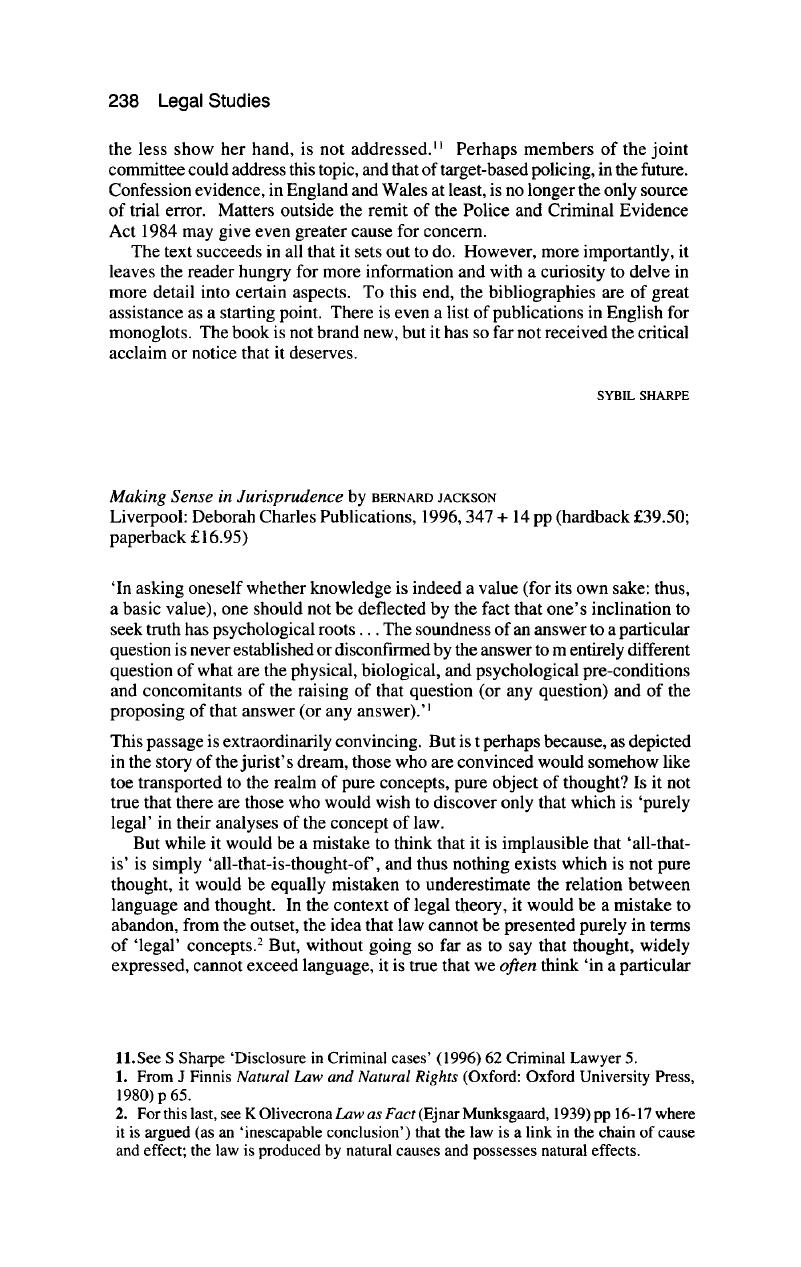No CrossRef data available.
Published online by Cambridge University Press: 02 January 2018

1. From Finnis, J Natural Law and Natural Rights (Oxford: Oxford University Press, 1980) p 65 Google Scholar.
2. For this last, see K Olivecrona Law us Fact (Ejnar Munksgaard, 1939)pp 16–17 where it is argued (as an ‘inescapable conclusion’) that the law is a link in the chain of cause and effect; the law is produced by natural causes and possesses natural effects.
3. The point can be made much more widely, such that by saying this about language, on is making the point made by Wittgenstein that understanding is an ability, such as the ability to use language: Putnam, H Reason, Truth and History (Cambridge: Cambridge University Press, 1981) pp 19–20 CrossRefGoogle Scholar. In some circles within the community of scholars working in analytical jurisprudence, the point is perhaps no longer taken as seriously as may have once been the case during the ‘balmy days’ of H L A Hart and A M Honoré: see eg B Bix ‘The Application (and Misapplication) of Wittgenstein's Rule-Following Considerations to Legal Theory’ (1990) 3 Can J Law and Jurisprudence 107; and, more generally, his Law, Language and Legal Determinacy (Oxford: Oxford University Press, 1993). which echoes Finnis's view that concern with language issues should not be taken for the whole of practical reason: see J Finnis ‘Reason and Authority in Law's Empire’ (1987) 6 Law & Philosophy 357. On the other hand, there is certainly evidence of a continuing commitment to language issues in other quarters within that tradition itself: see Stavropoulos, N Objectivity in Law (Oxford: Oxford University Press, 1996)CrossRefGoogle Scholar, which is the latest addition to a string of recently published doctoral theses on language issues in contemporary analytical jurisprudence; others are Marmor, A Interpretation and Legal Theory (Oxford: Oxford University Press, 1992)Google Scholar and Roumeliotis, M D Study of Epistemology in Legal Theory (London: Avebury, 1994)Google Scholar, and there is every sign of much more to come.
4. Quoted by Jackson at 119.
5. J Dewey ‘Logical Method and Law’ (1924) 10 Cornell LQ 17 at 23.
6. Hart, H L A The Concept of Law (Oxford: Oxford University Press, 2nd edn, J Raz and P Bulloch (eds), 1994) p v Google Scholar.
7. Audi, R (ed) Cambridge Dictionary of Philosophy (Cambridge: Cambridge University Press, 1995) p 799 Google Scholar.
8. D Pacitti, interview with Umberto Eco (1998) Guardian, 24 March.
9. This is not to say that the students themselves will not find such works helpful in light of the kinds of examination to which we ultimately subject them.
10. Allott, P Eunomia (Oxford: Oxford University Press, 1990) p xx (preface)Google Scholar.